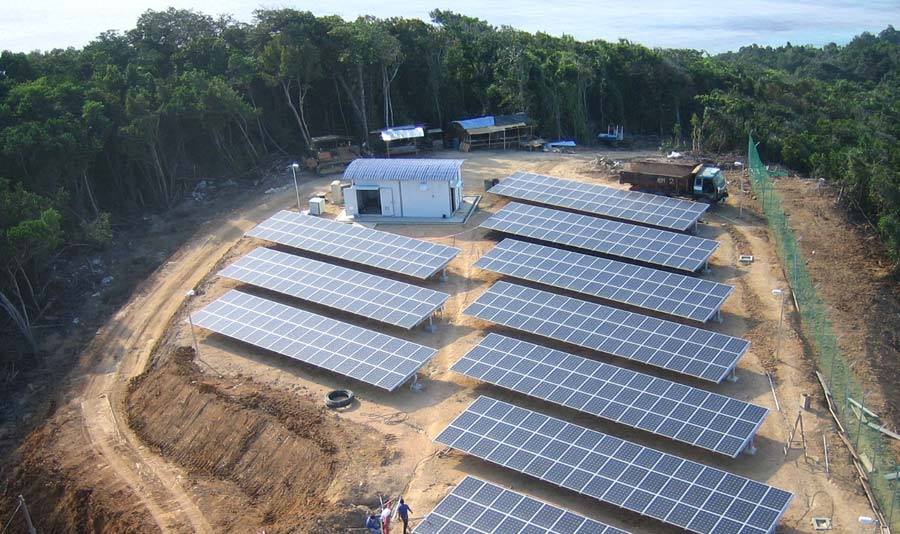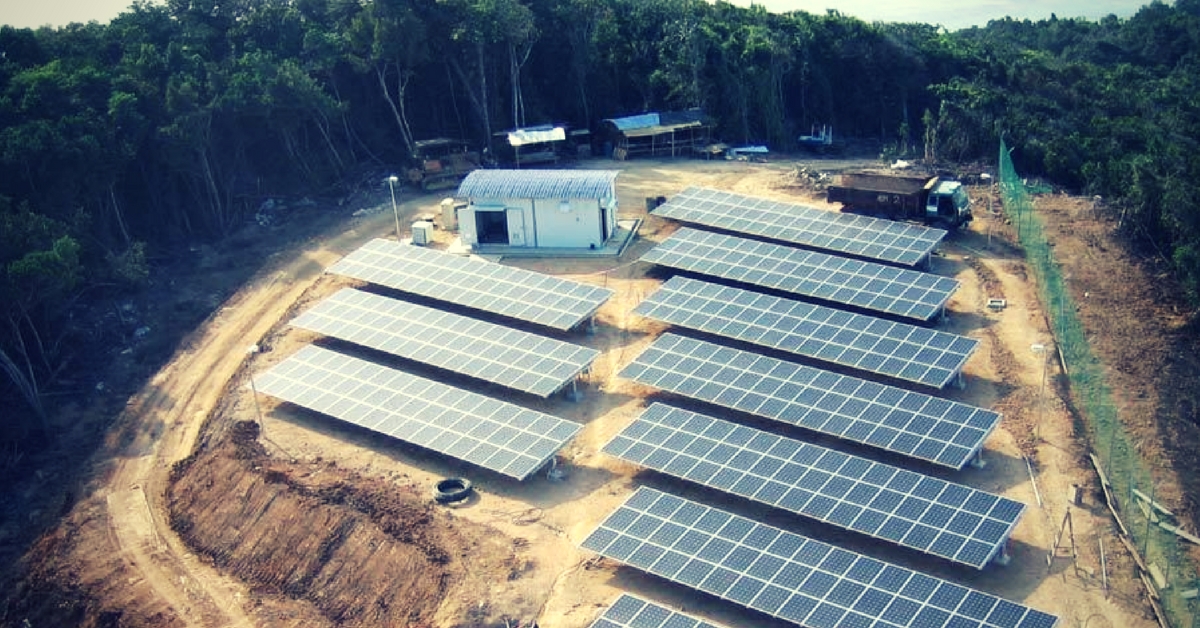The Chhattisgarh government is seeking to electrify all 19,000 villages in the next two years.
For the residents of Maoist-affected districts in the state, where conventional power infrastructure is either non-existent or constantly brought under disruption by non-state actors, decentralised off-grid solar power offers them a chance at receiving a regular supply of electricity.
While other power distribution companies may scoff at a chance to develop power grids in these areas, for KAHO India, a Noida-based startup which provides lithium-ion battery-based solar lighting solutions, this has proven to be a significant business opportunity.
“KAHO offers a range of solar products under the brand name ‘JAGRITI’ for both urban and rural markets—these include home lighting systems, street lightings, solar fridges, green buildings, and solar TVs. KAHO is committed to enabling solar everywhere and aims to provide energy access to millions of people across the country via its integrated solar solutions,” says the company website.
As per recent media reports, this company has bagged a Rs 40 crore contract to power 7,000 households in the Maoist-affected district of Sukma in Chhattisgarh.
Despite significant challenges on the ground, the company has gone on to complete half the project. According to The Hindu, it is also awaiting the results of a tender the Centre recently floated for developing “decentralised distributed generation systems” under its Rs 16,320-crore Saubhagya scheme.
To the uninitiated, the Centre’s Saubhagya scheme is aimed at providing low-cost electricity connections to over 4 crore families by December 2018.
Read also: Electricity for All by 2018: 8 Salient Features of the New Saubhagya Scheme
What is unique about KAHO India’s push towards rural electrification is its decision to adopt and manufacture lithium-ion batteries instead of depending on conventional lead-acid batteries. This transition has allowed them to make significant progress in developing off-grid solar powered solutions.

“As a start-up, we began our journey in 2012 with the plan to address last-mile energy access through compact solar modules,” Subhag Jain, the CEO of KAHO, told The Hindu. “We imported the first batch from China, and within days they were sold out. But the feedback we received changed our business plan.”
Problems associated with lead-acid batteries are well documented. “I believe right now we are at a clear crossroads when it comes to choosing a battery type for energy storage for off-grid energy systems. We are at the transition between lead-acid batteries, the tried-and-true technology used for decades, and lithium-ion’s promise of higher density, improved resiliency, and longer cycle life,” writes Joe O’Connor, Senior Application Engineer at Mercedes-Benz Energy, in a column for Medium.
In a recent report, the Independent Power Producers Association of India said, “With the growth in usage, prices of lithium-ion batteries have fallen by some 80% over the last five years. Even the capital cost of setting up lithium-ion battery plants has fallen from about $3,000/unit in 2008 to less than $500/unit now. In its annual report for FY17, the Indian Oil Corporation said it was looking at opportunities for manufacturing and retailing lithium-ion batteries.”
Read also: Internet Access 100 times Faster Than Wi-Fi? The Story Of An Indian Start-Up
So, KAHO India decided to get in touch with Li-ion manufacturers across the world. As luck would have it, they got a response from Samsung in Korea, which was supplying Li-ion to Tesla.
“They were surprised to see an Indian start-up approaching them for technology. We decided to make the batteries in India from a small set-up in Noida. From then on, the company has not only been making batteries for internal consumption of the systems it sets up but has also developed products such as refrigerators, TVs and high masts that can operate on Li-ion batteries,” Jain tells The Hindu.
Today, KAHO has a 30-MW lithium-ion manufacturing facility at Noida. “It won’t be long before the Railways and defence take to Li-ion batteries and we expect to make inroads into that space,” Jain adds.
Like this story? Or have something to share? Write to us: contact@thebetterindia.com, or connect with us on Facebook and Twitter.
NEW: Click here to get positive news on WhatsApp!
We bring stories straight from the heart of India, to inspire millions and create a wave of impact. Our positive movement is growing bigger everyday, and we would love for you to join it.
Please contribute whatever you can, every little penny helps our team in bringing you more stories that support dreams and spread hope.

